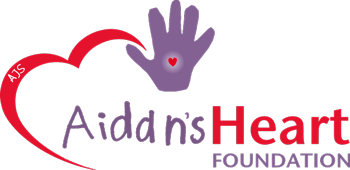On December 16th, 2021, Aidan’s Heart Foundation led a “Red Out” at Coatesville Senior High School as they took on Downingtown West boys’ basketball team. The Red Out served to raise awareness about Sudden Cardiac Arrest (SCA) in student-athletes and came together in the wake of a devastating on-field sudden death that occurred at Coatesville earlier this year.
Tragically, SCA is the leading cause of death in student-athletes and the basketball court is one of the most common venues for it to occur. In an article from USA Today May 2019, they found that a study finds most sudden deaths in youth sports occur in basketball.
Why?
SCA in student-athletes almost always occurs during exercise. Further, basketball is a sport that demands continuous speed and endurance. Combining these two elements in an athlete with a pre-existing heart condition (known or unknown) significantly increases the risk of exercise-related SCA.
Unfortunately, most SCAs that occur during sport are difficult to predict because they weren’t preceded by any symptoms, or the symptoms were vague. Conditions that predispose someone to SCA such as hypertrophic cardiomyopathy, long Q-T syndrome or R-on-T phenomenon are not something we can feel and are detectable only through electrocardiography (ECG) or echocardiogram (heart ultrasound). Once an athlete engages in heavy exercise, like during a basketball game, these conditions make ventricular dysrhythmia (abnormal heartbeat) much more likely.

Zeke Upshaw (Credit: Chicago Free Press)
A reminder of the link between sport and SCA was the untimely passing of Zeke Upshaw.
Upshaw was a 26-year-old professional basketball player who collapsed during a game in 2018. It is not known whether he had any symptoms prior to his SCA. But the medical examiner’s report noted “cardiac abnormalities” and an “slightly enlarged heart.”
Here is the tragic video of Zeke Upshaw collapsing on the court during a game.
So how can we, as parents and caregivers, keep our student-athlete children safe?
First, notify your pediatrician if there is any family history of unexplained SCA. Some heart conditions, like hypertrophic cardiomyopathy, are inherited. Your pediatrician won’t know this unless you tell them.
Second, pay attention to your child when they exercise. Tiring quicker than others, chest pain, dizziness or fainting are all concerning and should be reported to your child’s doctor.
Last, get your child screened. A standard sports physical does not effectively screen for heart conditions.
If you feel that your child may be at-risk for SCA, talk to your pediatrician about advanced screening methods like ECG and echocardiography.
In the weeks preceding the Red Out, AHF hosted a free heart screening for Coatesville student-athletes as well as a large-scale CPR/AED training event. Of the 140+ students screened, 23 required further investigation and 11 were found to have a potentially life-threatening heart condition. Our CPR/AED event trained 100+ Coatesville students.
